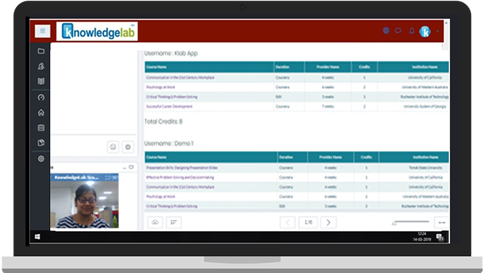IMPORTANT DATES
| GATE Online Application Processing System (GOAPS) Website Opens for Enrolment, ApplicationFilling, Application Submission |
September 03, 2019 (Tue) |
| Last Date for Submission of OnlineApplication through Website | September 24, 2019 (Tue) |
| Extended Closing Date for Submission of (Online) Application (through Website) | October 01, 2019 (Tue) |
| Last Date for Request for Change in theChoice of Examination City via GOAPS login | November 15, 2019 (Fri) |
| Availability of Admit Card on the OnlineApplication Interface for printing | January 03, 2020 (Fri) |
| GATE 2020 Online Examination Dates | February 01- 02 & February 08-09, 2020(Sat &Sun) |
| Announcement of Results on the Online Application Website | March 16, 2019 (Mon) |
GATE 2020 ELIGIBILITY
The following candidates are eligible to appear in GATE:
- Bachelor’s degree holders in Engineering/Technology (4 years after 10+2 or 3 years after B.Sc./Diploma in Engineering/ Technology) and those who are in the final year of such programs.
- Bachelor’s degree holders in Architecture (Five years course) and those who are in the final year of such programs.
- Bachelor’s degree holders of Four-year program in Science (B.S.) and those who are in the final year of such programs.
- Master’s degree holders in any branch of Science/ Mathematics/ Statistics/Computer Applications or equivalent and those who are in the final year of such programs.
- Holders of Four-year Integrated Master’s degree (Post B.Sc.) in Engineering/Technology and those who are in the second or higher year of such programs.
- Holders of Five-year Integrated Master’s degree or Dual Degree in Engineering/Technology and those who are in the fourth or higher year of such programs.
- Holders of Five-year integrated M.Sc. or Five-year integrated B.Sc./M.Sc. degree and those who are in the final year of such programs.
- Candidates with qualifications obtained through examinations conducted by professional societies recognized by UPSC/AICTE/ MHRD as equivalent to B.E./B.Tech. Those who have completed Section A of AMIE or equivalent of such professional courses are also eligible.
GATE 2020 EXAM PATTERN
| Section | Question No. | No. of Questions | Marks Per Question | Total Marks |
| General Aptitude | 1 to 5 | 5 | 1 | 5 |
| 6 to 10 | 5 | 2 | 10 | |
| Technical + Engineering Mathematics | 1 to 25 | 25 | 1 | 25 |
| 26 - 55 | 30 | 2 | 60 |
| Total Questions: 65 | Total Marks: 100 | Total Duration: 3 hours |
| Technical Section:70 marks | General Aptitude: 15 marks | Engineering Mathematics:15 marks |
GATE examination consists of Multiple Choice and Numerical Answer type questions.
Multiple Choice Questions (MCQs):
These questions are objective in nature and each question will have choice of four answers, out of which the candidate has to mark the correct answer. Each question carries 1 or 2 marks in all the sections.
Numerical Answer Questions:
There will be no choices available for these types of questions. A Numeric Answer question carries 1 or 2 marks questions in all sections. The answer for these questions is a real number to be entered by using mouse and virtual keypad displayed on the monitor. No negative marking for these questions.
Scoring Pattern
| Questions Type | Marks | Negative Marking |
| Multiple Choice Questions (MCQs) | 1 mark | 0.33 |
| 2 marks | 0.66 | |
| Numerical Answer Questions | 1 mark | Nil |
| 2 marks | Nil |
EXAM PREPARATION STRATEGY
Big Journeys begin with Small Steps
There are two categories of ESE/GATE Aspirants:(1) Freshers, preparing for the first time for competitive exams (Neophytes) (2) Repeaters, who have already attempted once or more (Rank Improvers).
STRATEGY FOR FIRST TIME ATTEMPT
If you are a fresher and preparing for the first time, then you may follow this approach.
- Define your aim and target the desired exam right from the beginning. You should examine closely the examination pattern, syllabus and the level of difficulty.
- The first step for amateurs should be to go through previous years’ question papers of the aimed exam and identify what type of questions are asked, like whether it is theoretical (what subjects/ topics are mostly asked) or derivations or numerical type.
- Keep one reference book for each subject. You are not advised to read too many books for each subject; practically it is not possible in a limited time frame.
The Study Regime:
Make an overall plan of your career; define immediate and ultimate goals of your career, then make a roadmap to execute in most effective manner. Being an engineer, you should understand the importance of planning and execution of the plan.
Overall plan may be further divided into three stages:
1. Six month /One year plan:
Divide months for different subjects and plan it so as to complete the entire syllabus in the remaining time. In the current scenario of high cut-offs, do not go for selective study; instead cover the entire syllabus, because you never know “the topic left could be the topic of conquest”.
2. Subject-wise Plan/ Bi-weekly plan:
For each subject, study should be exam oriented, i.e. you should get familiar with the subject, so that you know which area is to be focussed like whether theory has to be focussed or numerical or solving previous years’s questions will suffice. Every subject requires a different approach.For example, in mathematics, you may be required to focus on practicing problems while English would have a different approach. Likewise, in technical subjects, the approach may differ from subject to subject.
If you are enrolled in any coaching institute, then concentrate and study well at the coaching centre. You should take a lot of class notes, with simultaneous marking of IMPORTANT concept /formulae and develop a habit of writing of NOTE points,wherever required. If self-study is your style of preparing without coaching, then also making notes is advisable.
One point to be kept in mind is “Work for Yourself”; i.e. make notes for yourself, it should be your own hand written notes, as this will increase your writing efficiency in terms of speed, accuracy and hand writing and also helps in memory retention.
3. Daily To-Do list /Daily plan:
This is basically for effective time management. Plan and freeze the study hours and abstain from using mobile phones, social media, what's app etc during these hours. 10 to 15 minutes are sufficient to plan next day schedule, it will help in removing redundant activities of your schedule and you can make best use of your time for study. I would also suggest to pre plan your area /subject /topic of your study for next day, it would help in activating senses of your mind to stimulate for study which helps in better memory retention.
Solving previous years’ questions of GATE & ESE (at least of last 10-15 years) should be done in tandem with class notes. Do not postpone it for later;for topic that is covered in class or studied on your own, finish the previous years' questions on priority basis.
While solving questions, mark the questions which you were not able to solve. Refer the reference book for clarity of concepts and solve again. In front of the question write the page number and name of the reference book and in the book underline or highlight the concept. This above methodology is to be followed for all workbook and other study materials. After a few months while doing revision you should re-attempt these marked questions only and no need to solve other questions.
4. Make a REVISION plan:
Make a habit of reading and revising simultaneously.
While studying a particular subject, devote 70-80% of self-study time in developing concepts of new subject and rest 20-30% time should be religiously devoted for revision of already completed topics/subjects. And, towards months closer to exam, increase the revision time for proper retention of concepts till exam day.
While revising, make sure you do the following:
- Review of class notes.
- Revise underlined/ highlighted portion of text book.
- Then attempt only the marked questions once more.
- If time permits, then start with new set of questions.
Make Micro notes:
After finishing every subject make micro notes, which have only principal formulae/ diagrams/ concepts of at most importance, especially note down the area which you find difficult to remember. Then, once this is done, take a snapshot and store in your mobile gallery. These will be your Digital Micro Notes, which can be revised anywhere and everywhere, while travelling, gap between two classes, free time.
Flow like a river:
Discuss with friends and seniors and keep on clearing your doubts, don't allow to accumulate the doubts which may result in mental stress. Also interact with successful seniors and fellow mates to know about their path of success/strategy, it is synonymous with river water which gets purified as it flows.
Evaluate yourself:
Take tests in examination environment and make note of areas of difficulty and make a roadmap to improve these before the next test. Stay away from incompetent and non-achievers. Don’t let their failure demoralise you in any sense.
5. Make holistic and balanced approach:
Cover entire syllabus but more time should be given to important areas. Identify important subjects and mark important topics within a subject. Scoring and low scoring areas should be segregated. Make a balance study plan for technical and non-technical subjects. Mathematics and Reasoning Aptitude section is quite scoring in GATE exam.
STRATEGY FOR REPEAT ATTEMPT:
- If you are attempting for the second time, you are definitely better prepared than the first time and hoping to achieve a higher rank. Congratulations for your perseverance.
- Review your past performance carefully identify your weak areas.Start your preparation by first improving on these areas.
- Focus more on solving different types of problems and that too from new source of material in each iteration.
- Plan your study to maintain regularity and self-motivation; daily scheduling and subject wise scheduling is very important for a systematic preparation.
- Join a good test Series &appear for tests with full preparation and take the test in examination environment and solve previous years' questions of various exams. Solving previous years’ papers of GATE will be very useful.
- To maintain continuity and keeping up the self-motivation, form groups of 3-4 friends and make schedule of group study once in a week to discuss complex questions and doubts.


































